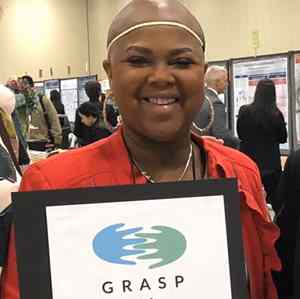-
2019: This Year in Cancer News
The Cancer Today editorial staff selects some of the most impactful and informative reporting and essays of 2019.
by Cancer Today Staff
-
Progress, But Still Room for Improvement
The winter 2019/2020 issue of Cancer Today tells the stories of people working to improve privacy protections for patients seeking support online, expand access to genetic testing and boost the efficacy of immunotherapy to benefit more patients.
by Kevin McLaughlin
-
Telling Your Children About Inheritable Cancer Risk
Letting children know they might have a mutation that increases their risk for cancer can be a challenge for patients. Experts stress there is no right or wrong way to share the information.
by Marci A. Landsmann
-
How Disability Insurers Monitor Patients Online
Companies that offer disability insurance may monitor patients' social media accounts to determine if they qualify for the benefits being received.
by Kate Yandell
-
Noble Art
Art therapist and licensed clinical professional counselor Jacqueline Carmody describes how a unique art therapy program helps people affected by cancer.
by Bradley Jones
-
Cancer Patient Advocates Find Strength in Numbers
Patient advocates have become a vital part of the San Antonio Breast Cancer Symposium. Opportunities for advocates continue to multiply.
by Marci A. Landsmann
-
December 20: The Week in Cancer News
Stool-based colorectal cancer screening may come with unexpected costs, and losing weight is associated with reduced breast cancer risk in postmenopausal women.
by Kate Yandell
-
Exploring Immunotherapy for Triple Negative Breast Cancer
Following the approval of the first immunotherapy for breast cancer by the U.S. Food and Drug Administration in March 2019, experts at the San Antonio Breast Cancer Symposium discussed avenues for further development.
by Marci A. Landsmann
-
December 13: The Week in Cancer News
Hispanics living in the U.S. are at increased risk of being diagnosed with and dying from cervical cancer, and a cancer researcher and survivor writes about the problem with focusing on one universal cancer cure.
by Kate Yandell
-
A Switch From Intravenous to Oral Chemo?
Compared with intravenous paclitaxel, the oral form of the chemotherapy drug was associated with improved tumor shrinkage in metastatic breast cancer patients.
by Ashley P. Taylor
Cancer Talk
Can Steroids Impair Immunotherapy for Cancer?
A new study suggests steroids could blunt the effects of some immunotherapies, but researchers say they remain necessary for some patients.
by Kyle Bagenstose
Treatment Combination Improves Survival in Platinum-resistant Ovarian CancerPreliminary results found that combining relacorilant with nab-paclitaxel improved outcomes for women with advanced ovarian cancer.
by Sandra Gordon
CAR T-cell Therapy Shows Response in Rare Brain CancerPotential new approach to treating diffuse intrinsic pontine glioma uses engineered immune cells infused directly to the brain.
by Taneia Surles
Technology’s Changing Role in Cancer CareExperts explain how artificial intelligence, nanotechnology and decentralized care are poised to improve research, detection and treatment.
by Thomas Celona














